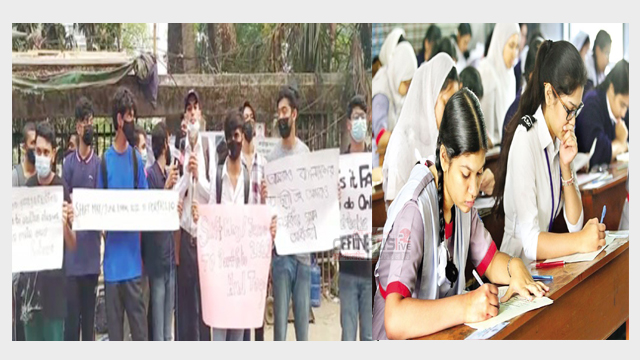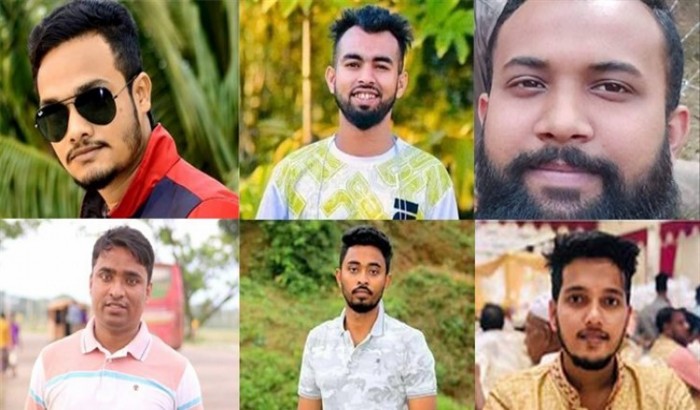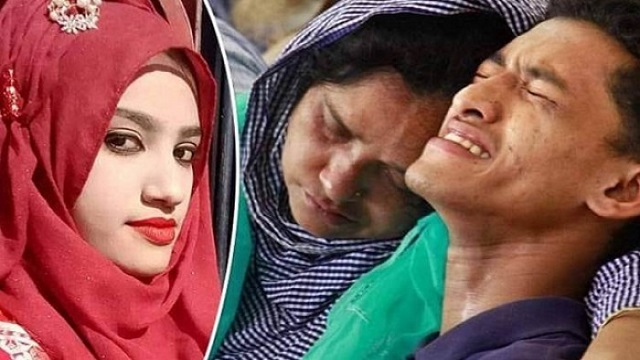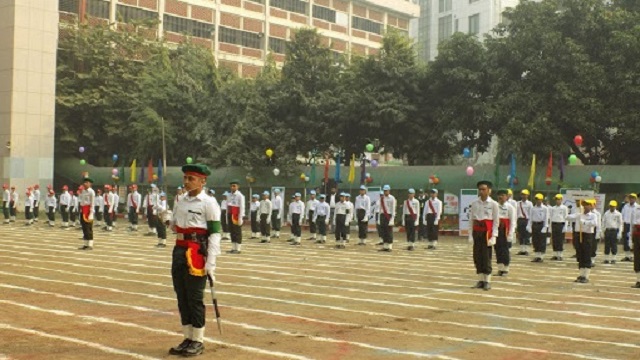Children learn color discrimination from family, society
Published:
2023-04-03 03:38:28 BdST
Update:
2024-04-20 09:37:50 BdST
Live Correspondent: Tasnia (pseudonym) is a student of the playgroup at a kindergarten in capital Dhaka. One day, she told her parents that she will no longer go to school. When she was asked about the reason, she said a classmate of hers doesn't want to play with her as she is a brown-skinned girl. Hearing such negative comments about herself, the child is reluctant to go to school.
Tasnia's mother said they talked to the teachers in this regard and they said they will inform the guardian of the student about this. According to her, the child learned the white-black difference from her family or surroundings. So, she thinks her family should be careful first.
Such color discrimination in educational institutions is so terrible that sometimes guardians are forced to change their children's schools. Such an incident happened in an English medium school in the capital. Standard One student Sadman Shakib (pseudonym) expressed reluctance to go to school due to a negative comment made to him by classmates. Later, guardians, being compelled, admitted him to another school.
Shakib's mother said, "Negative remark is still made to my child about his skin color despite changing his school. Sometimes he expresses frustration. We don't feel better seeing these as guardians." This guardian thinks educational institutions should be aware of color discrimination besides family.
Experts said such incidents are happening all over the country, including capital Dhaka, but those don't come to the limelight. However, it is very clear that colorism is entering children's minds but they don't understand. They learn these from family and society; white-black, rich-poor and religious differences are taking place in children's minds and they are growing up with these differences. It will be difficult to make a good social system if public awareness is not created in this regard.
EduCan International Director (learning and development) Dr GM Nizam Uddin told Jago News that it is difficult for a child to tolerate when he is told, you are black. Now educational institutions are run giving importance to good results. These discriminations will remain unchanged if lessons are given only for examination instead of laying importance on humanity and manners.
He also said all people are equal, no one can be seen separately, and these are not given much importance in schools and colleges. In the family, many parents maybe do not give this lesson to children or unknowingly, they present these differences before them. Basically, children observe their surroundings and learn that way. So, everyone should be aware of this.
Dhaka University (DU) Psychology Department Chairman Professor Dr Md Kamal Uddin told Jago News this kind of problem was before and is still now. Actually, children learn by seeing family, parents, siblings and surrounding people. If someone talks about skin color and health, they learn these. Hearing these comments, other children look at their own bodies and feel shy. It is identified in school during admission whether a child is from a rich family or poor, such as how much money his/her family earns.
Why should schools know these in the admission forms? Do schools give money to students' families if their income is less? Besides, why is the child's religion asked in the admission form? Will the schools arrange beef and goat meat separately for Muslim and Hindu students? Educational degree of the children's parents is also asked to know in the admission form. These should not be in schools and colleges.
He also said schools can seek only essential information from students in case of admission. It is not necessary to collect students' religion-race, parents' educational qualifications and income. These should be omitted. At first, if children are made to do something good, one day they will do everything properly.
The psychologist talked about an organization named Parents and Teachers Association (PTA). He said the organization mainly discusses the problems children face and the reasons behind their reluctance to go to school.
If such activities were in all schools, the problems would have been identified and those guardians would have been alerted who teach discriminatory behaviour, said Prof Dr Md Kamal Uddin.
Mohammad Abdul Odud, the headmaster of Al Hera International School in Siddhirganj, said, "Sometimes we receive reports of color discrimination among children. Most comments are about skin color and we received some reports on religious identity. I myself made children understand in classes and they said it's their fault.
Now grouping is seen among male and female students at classes. We are waging a movement for a discrimination-free education system so that discrimination doesn't enter children's minds and they don't understand the difference between rich and poor.
He said all, including family and teachers, should be aware so that children can grow up with no discrimination. We should be careful so that children don't get wrong messages in drama and cinema. Children get most messages from family but they also learn from the surrounding environment, make difference among themselves and mock others. Teachers should not allow children to do so. Educational institutions have a role to play in this regard. They should correct when children make such comments.
Nasir Uddin, the headmaster of Mirpur Uposhohor Government Primary School, said children cannot be seen separately in class or family. You look not good, your religion is not good, and these words should be avoided. Families should be aware of colorism as it may come from family. Everyone will have to be aware so that children do not learn something negative.
According to mental health experts, disparaging comments may obstruct children's mental development and create a kind of frustration among them.
In this regard, National Institute of Mental Health and Hospital Associate Professor and Child Psychiatrist Dr Helal Uddin Ahmed told Jago News that children learn the behaviour which they see among parents at home, hear at school, read in textbooks and see on social media. They learn discriminatory behaviour from their surroundings. That is why change should be brought in parents' behaviour and conversation, in drama-film and social media content.
Giving family and educational institutions suggestion for being careful, the psychiatrist said, We should be proactive so that children do not go through this kind of words. Family and educational institutions both will give this lesson. Primarily it is needed to make them aware of these, and forbidding or intimidating them is a secondary task.
Policymakers in government also should lay importance on this. The development of a child's mental, knowledge and human practice is equally important to its physical development. As a result, importance should be given to mental excellence besides teaching swimming, exercise, etc.
Bangladesh Shishu Academy Chairman Lucky Enam told Jago News she thinks families are responsible for the incidents of color discrimination happening with children. Children are influenced by the way parents and guardians discuss and operate their lives.
She also said, "It will be very sad if color discrimination spread among children and we have to prevent it. We (Shishu Academy) are working on this and it should be discussed in all places. Teachers will teach children how they will behave with each other and what things they will refrain from. That is why, an instructional book should be there."
In this regard, UNICEF Bangladesh Child Protection Chief Natalie McCauley told Jago News discriminatory behaviour is the result of existing structural inequality and partiality in society which generation after generation learns. Children have the unique power of breaking this chain. Every child has a right to grow up in a discrimination-free environment. As adults, parents, public representatives and role models, our responsibility is to create value of equality among children through our efforts.
Dhaka, 02 April (campuslive24.com)//CM
Topic:







Share Your Valuable Comments: